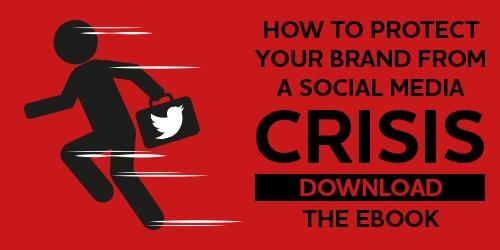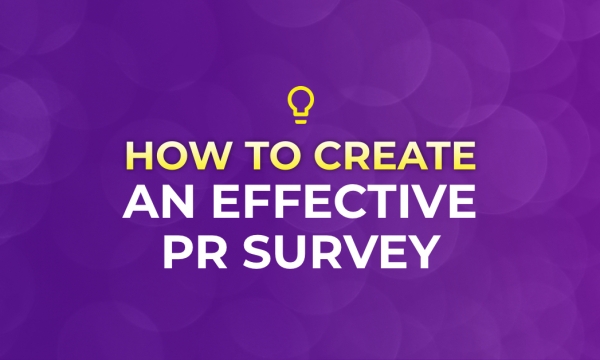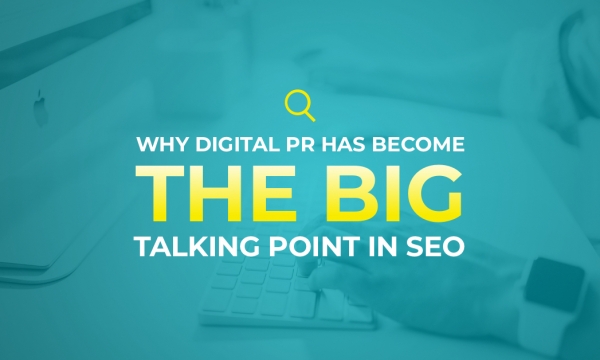Social media and blogs have made it incredibly easy to get content out there, but we’ll stop with the term ‘easy’ right there. While it may be ‘easy’ to get content out there, the market is saturated and competition is fierce. Ideas need to be original and serve a purpose. One thing’s for sure - it’s certainly not ‘easy’ to get your brand noticed.
Far too often, brands forget about their campaign goals and, in the rush around to get news out the door, their real message gets lost in the kerfuffle. Some brands are afraid to take themselves out of their comfort zone and try new things, so they revert back to the same old tactics which, to put it frankly, just won’t cut it. In the modern world of news, to stand out you need to challenge competitors and lead the way in your market. Everything you do as a brand needs to consider who you’re targeting - both in terms of writers and readers.
It’s a tough old world to crack with, 24 hour newsfeeds and content on a drip-feed. But there’s many new and fresh tactics that should be used to get your brand noticed. Here’s our top seven mistakes to avoid.
PR Mistake #1: Not being personable

It’s no good mass-mailing out to a Gorkana list of 200 contacts. Journalists won’t appreciate this blanket approach and unless you have pictures of a known celebrity doing something they shouldn’t (which I’m guessing you don’t) a generic email to irrelevant journalists isn’t going to get your brand noticed.
The world of PR today is all about being personable and building relationships. We spend a lot of time researching, finding the right contacts and getting to know what those journalists want. PR is all about relationship building, so make sure that you have the right contacts and foster working friendships.
To be honest, this is nothing new, it has always been a core principle of PR but in a world of rushed out news, it’s becoming an often neglected skill.
PR Mistake #2: Using press releases, for absolutely everything!

Now don’t get me wrong, I’m not saying press releases aren’t valuable and I certainly don’t think they are dead, but they’re not needed in every single campaign.
Think about the launch of a newly revised product. If you’re clever about it, a simple email outlining your campaign or product can be enough. Sometimes, going the extra mile beyond a press release is what gets you noticed. Offering experiences, exclusives or video content could be much more valuable.
Got a tonne of data? You obviously need to put it somewhere and a press release is key in this situation. Remember a three-line pitch with the press release underneath is best and most importantly - make sure the heading is interesting.
PR Mistake #3: Not being quick enough

Reactive news angles can often be extremely fruitful in the world of PR. That said, if you’re so caught up in working on a planned out campaign, it’s easy to get distracted and miss out on these opportunities so make sure that you still dedicate time to this area.
If there’s an opportunity, grab it by the horns and get at it quick. Does a journalist need a quote? Don’t spend six hours getting it together. They want it now. The quicker you react, the easier you make it for the journalist in question. Make it easy for them and they’ll come back to you. Make it complicated and you’ve got no chance.
PR Mistake #4: Not thinking about the impact on your wider marketing strategy

Why is there so much debate around traditional PR versus digital PR? In all truthfulness we should be working together. It’s important to be aware of the impact that your campaigns are having on your whole marketing communications strategy and that all of your messaging is aligned. Consider the channels you have available:
- How could it influence your organisation’s search strategy?
- What sort of website content could you create?
- What paid activity can you do to support your overall goals?
Working together as a wider team is essential to save time and money. Consider whether your PR campaigns could work online and see if your projects could help support other teams with their objectives as well as your own. After all, saving time and money is a very valuable skill to have in this business, so use this opportunity to do just that.
PR Mistake #5: Offering quotes that are… promotional

It’s understandable that you want to promote your brand as much as possible, however quotes need to be personal, not promotional.
Journalists aren’t bothered about your service or messaging, they care about the story. They want quotes that are human and personable. It needs to be real, not robotic. Some of the biggest entrepreneurs are media moguls because their PR teams make them personal.
PR Mistake #6: Thinking that everyone is as interested in your brand as you are

I get it, you’re passionate about your brand and that’s great. You’re launching a new product and it’s exciting, but how does that affect the wider industry? Not everyone will be as interested in what you have to offer.
The best way to get noticed is to share that passion and share insight. What makes your product a market leader? You may have the answer to all of these questions. If you do, you need to make sure the journalist knows about it.
It doesn’t guarantee coverage though. The harsh reality is that not everyone will want a piece of your brand.
PR Mistake #7: Using old school metrics

Shall we start with AVE? There are so many better metrics that can help you analyse your campaign’s success. We’re an agency where teams are committed to looking at new methods of measurement and we know it can be hard to measure the direct impact of a PR campaign on conversions, but believe me, there are alternative ways to help attribute how PR has made a difference to your company.
Google Analytics is a great starting point - looking at traffic, engagement and attributing when coverage has happened and how this may have affected your site are all much more valuable methods of evaluation.
It's important to remember that all of the traditional tactics you have loved and learnt are still very much useful assets and skills, but it is vital that brands adapt their way of thinking towards PR and constantly review their approach. PR is quickly changing and it’s important that brands are doing what’s best for their future.




